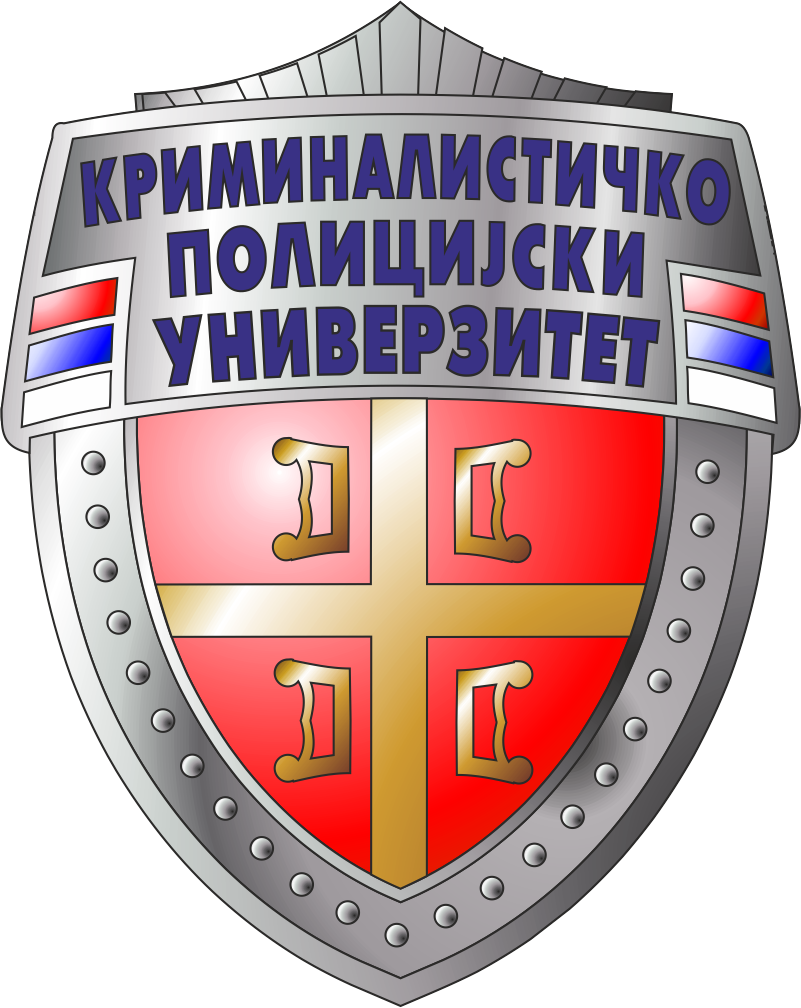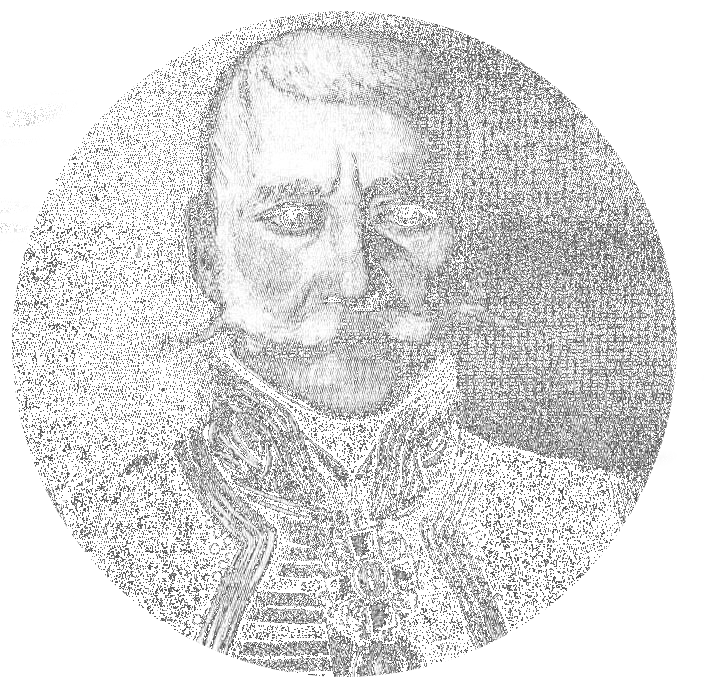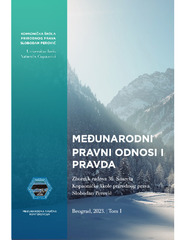Приказ основних података о документу
Pravo na život kao fundamentalno ljudsko pravo i njegova ograničenja u okviru krivičnog prava : nove tendencije
The right to life as the most fundamental human right and its limitations in criminal law : new trends
| dc.creator | Kolarić, Dragana | |
| dc.date.accessioned | 2024-03-01T13:56:28Z | |
| dc.date.available | 2024-03-01T13:56:28Z | |
| dc.date.issued | 2023 | |
| dc.identifier.isbn | 978-86-81956-18-2 | |
| dc.identifier.uri | https://jakov.kpu.edu.rs/handle/123456789/1662 | |
| dc.description.abstract | Pravo na život spada u tvrdo jezgro ljudskih prava, koja se ne mogu derogirati, garantovano čl. 2 Evropske konvencije za zaštitu ljudskih prava i osnovnih sloboda i čl. 24 Ustava Republike Srbije. Evropski sud za ljudska prava je izgradio važne standarde u pogledu zaštite prava na život. Nederogativnost pojedini autori ističu kao važnu karakteristiku apsolutnih prava. Međutim, postoje inherentna ograničenja prava na život. Stoga se otvara dilema da li je pravo na život, jedno od nederogativnih prava u koja su ipak, ugrađena određena inherentna ograničenja, apsolutnog karaktera? Ako je lišenje života u nekim situacijama dozvoljeno da li mu to, po prirodi stvari, odriče apsolutni karakter? U analizi ovih pitanja navešćemo i najnoviju praksu Evropskog suda za ljudska prava, koja baca drugačiju svetlost na pravo na život jer se danas sve više u prvi plan ističe pravo čoveka na samoodređenje, dostojanstven život i slobodu ličnosti. Posebno mesto zauzeće ekspertiza odluke Saveznog ustavnog suda Nemačke u kojoj se utvrđuje da je inkriminacija pomaganja u samoubistvu neustavna, presuda ESLJP Mortier protiv Belgije u kojoj se po prvi put ispitivalo da li je čin eutanazije bio u skladu sa EKLJP i gde je razjašnjena priroda i obim pozitivnih obaveza države (materijalnih i procesnih) na osnovu čl. 2 u vrlo specifičnom konkretnom kontekstu i presuda Velikog veća Gross v. Switzerland koja utvrđuje povredu čl. 8 jer švajcarski zakon nije dovoljno jasan u vezi dozvoljenosti asistiranog samoubistva. Imajući u vidu da su ove odluke blisko povezane sa odgovarajućim inkriminacijama u krivičnom zakonodavstvu autor ukazuje na nove tendencije u zaštiti prava na život u krivičnom pravu. | sr |
| dc.description.abstract | The right to life belongs to the hard core of human rights, those which cannot be derogated from, guaranteed by Article 2 of the European Convention for the Protection of Human Rights and Fundamental Freedoms and Article 24 of the Constitution of the Republic of Serbia. The European Court of Human Rights has built important standards regarding the protection of the right to life. Some authors emphasize non-derogation as an important characteristic of absolute rights. However, there are inherent limitations to the right to life. Therefore, the dilemma arises whether the right to life, one of the non-derogatory rights in which certain inherent limitations are still incorporated, is of an absolute character? If deprivation of life is allowed in some situations, does that, by the nature of things, deny it its absolute character? In the analysis of these issues, we will mention the latest practice of the European Court of Human Rights, which sheds a different light on the right to life, because today the human right to self-determination, a dignified life and personal freedom are more and more in the foreground. A special place will be taken by the expertise of the decision of the Federal Constitutional Court of Germany, in which we find that the criminalization of assisting suicide is unconstitutional, the judgment of the ECtHR in Mortier v. Belgium, which for the first time examined whether the act of euthanasia was in accordance with the ECHR, and where the nature and scope of positive obligations (material and procedural) of the state were clarified based on Article 2 in a very specific concrete context and the judgment of the Grand Chamber in Gross v. Switzerland, which finds a violation of Article 8 because Swiss law is not clear enough regarding the permissibility of assisted suicide. Bearing in mind that these decisions are closely related to the corresponding incriminations in the criminal legislation, the author indicates new tendencies in the protection of the right to life in the criminal law and makes suggestions de lege ferenda. | sr |
| dc.language.iso | sr | sr |
| dc.language.iso | en | sr |
| dc.publisher | Beograd : Kopaonička škola prirodnog prava - Slobodan Perović | sr |
| dc.rights | openAccess | sr |
| dc.rights.uri | https://creativecommons.org/licenses/by/4.0/ | |
| dc.source | Međunarodni pravni odnosi i pravda : zbornik radova 36. susreta Kopaoničke škole prirodnog prava - Slobodan Perović, Kopaonik, 13. – 17. decembar 2023 : međunarodna naučna konferencija. Tom 1 = International legal relations and justice : proceedings of the 36th Meeting of Kopaonik school of natural law - Slobodan Perović, Kopaonik, 13 - 17 December 2023 : international scientific conference. Vol. 1 | sr |
| dc.subject | European Court of Human Rights | sr |
| dc.subject | right to life | sr |
| dc.subject | right to dignity | sr |
| dc.subject | criminal protection | sr |
| dc.subject | assisted suicide | sr |
| dc.subject | euthanasia | sr |
| dc.subject | Evropski sud za ljudska prava | sr |
| dc.subject | pravo na život | sr |
| dc.subject | pravo na dostojanstvo | sr |
| dc.subject | krivičnopravna zaštita | sr |
| dc.subject | pomaganje u samoubistvu | sr |
| dc.subject | eutanazija | sr |
| dc.title | Pravo na život kao fundamentalno ljudsko pravo i njegova ograničenja u okviru krivičnog prava : nove tendencije | sr |
| dc.title | The right to life as the most fundamental human right and its limitations in criminal law : new trends | sr |
| dc.type | conferenceObject | sr |
| dc.rights.license | BY | sr |
| dc.citation.spage | 103 | |
| dc.citation.epage | 118 | |
| dc.identifier.rcub | https://hdl.handle.net/21.15107/rcub_jakov_1662 | |
| dc.identifier.fulltext | http://jakov.kpu.edu.rs/bitstream/id/6926/2023.pdf | |
| dc.type.version | publishedVersion | sr |
| dc.identifier.cobiss | 135876105 |


